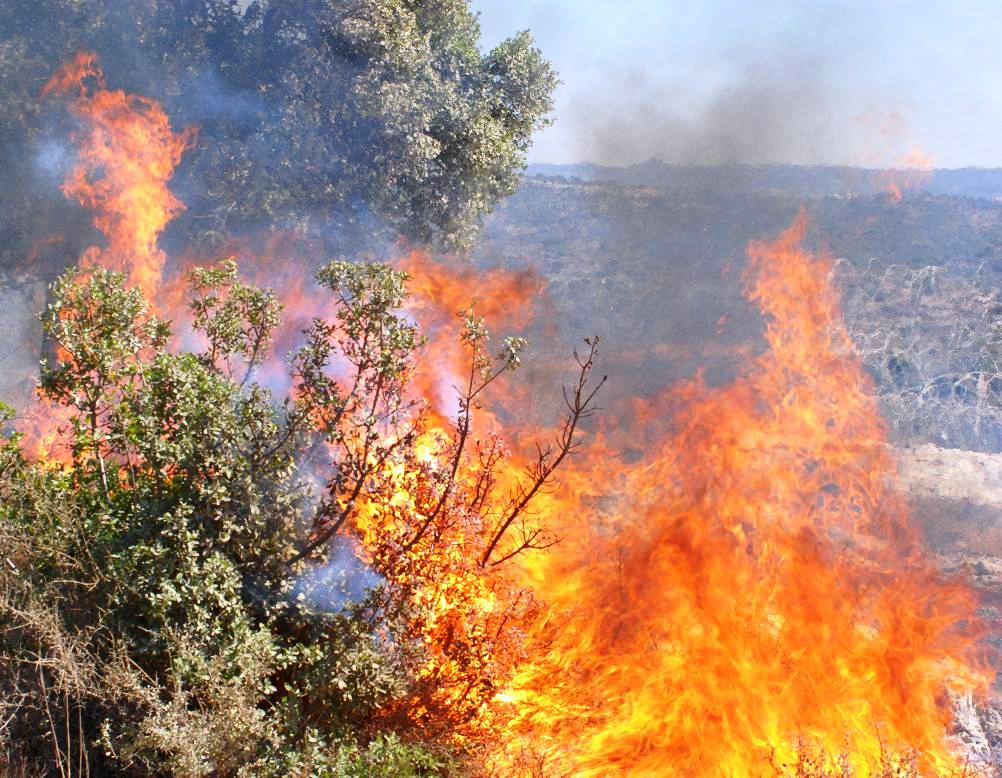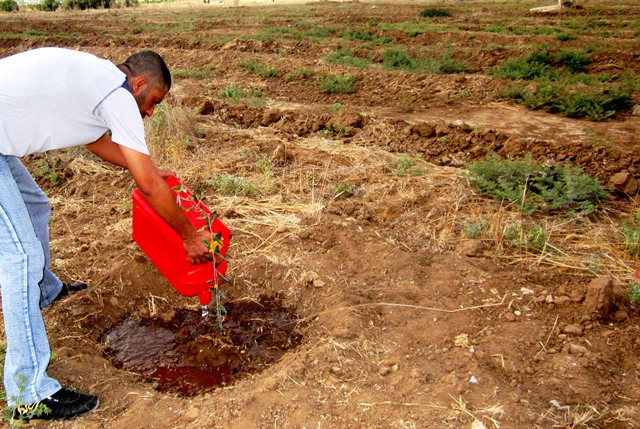Category: Journals
-
There is no east: Olive harvest in Gaza
15 October 2011 | International Solidarity Movement, Gaza Gaza doesn’t have very much farmland left. The expanding no go zone imposed by Israeli bullets and bulldozers constantly erode the amount of land left for Palestinians to farm in Gaza. Mohamed Ashure Shimbari lives on the edge of the no-go zone. If you look east from…
-
The lonely olive tree of Bil’in
14 October 2011 | International Solidarity Movement, West Bank Near the concrete wall which separates Bil’in from Modiin Illit colony, occupied by ultra-Orthodox Jews, there is an olive tree. It is impossible to know how it survived the construction of the wall and how it continues to resist to the lack of a few cares that the specie demands – a lack caused by the Israeli barbed wire fence that prevents the access of the residents…
-
Gaza: Planting the symbol of Palestinian livelihood
12 October 2011 | International Solidarity Movement, Gaza The zone of death, what Israel calls the buffer zone, to the north of Beit Hanoun isn’t shrinking but is a little less dead. For the last three years, the only life that has managed to survive here was a few scraggly plants that somehow manage to…



